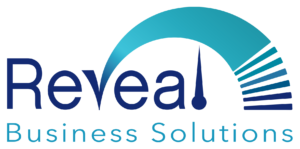Getting Your Business Ready to Sell
By: Valerie Briley, CPA, Founder, and Chief Business Driver, Reveal Business Solutions
Shortly after the market crash of 1987, Volvo’s CEO Pehr Gyllenhammar made the phrase “Cash is King” vogue. In 1987, I was acid-washing my rolled-up jeans and perming my hair! Oh my, those were the days. The internet barely existed, but interestingly cybersecurity and McAfee were launched in 1987.
Times have changed; you no longer rely on your brick-and-mortar bank to make a deposit. Hardly anyone under the age of 40 has check stock. There are numerous ways to collect and make payments. Your mobile phone has become your primary connection to banking activities like making deposits, verifying activity, and checking balances. However, along with this increase in convenience came increased risk.
We were reminded this past week of the potential risks that banking has, even when discussing a Top Tier institution. Last week, Silicon Valley Bank (SVB) failed and was taken over by regulators. You can read all about that here. I want to focus on the impact that had on us and the fears we held for a few days after the collapse.
SVB was a lender to some of the biggest names in the technology world. We were feeling relieved that none of our clients banked with SVB. But it wasn’t long until the realization of the reach of the collapse of SVB came over us. It was extensive, and we were sweating.
We started taking assessments of what apps were being used for each client. Then we launched into detective mode to find statements released by each app regarding their impact. Some technology partners, like Gusto, promptly posted the “all clear” sign. By Saturday, most partners had shared a statement of the impact, if any, and what to expect.
Honestly, this could have been so much worse. However, we don’t want this event to pass without pause. It commands a pause. So, what are our takeaways?
We chose our tech stack strategically and performed due diligence before integrating. However, knowledge about who banks with whom or whether they have multiple relationships is not available to assess. I guarantee it will be now. We were pleasantly surprised to learn that our technology partners had numerous banking relationships. And while they may have had a relationship with SVB, they could pivot to their other relationships quickly. By Tuesday, we were functioning as if nothing had happened at all. The panic hasn’t worn off yet; we’re still on high alert.
This brings us to you. As your trusted advisor, accounting ninja, and all-around numbers guru, we will do our part to be a good steward of your business, assets, and your cash! We can’t do it alone. Here are seven tips to help you protect your castle so that when you need it, your cash is king.
- Understand FDIC limits – the standard insurance amount is $250,000 per depositor, per insured bank, for each ownership category. Each co-owner of a joint account is insured up to $250,000 for the combined amount of interests in joint accounts per insured bank. Each person and legal entity are separately insured, which is crucial if you have your personal and business account at the same bank.
- If possible, divest your cash among at least two banks. It helps with FDIC limits, but having another banking relationship and account is beneficial in case your primary bank account becomes compromised or suddenly unavailable.
- A best practice is to have one account where you receive payments; and a separate account for disbursements. You can fund the disbursement account weekly, bi-weekly, or monthly to cover accounts payable and payroll.
- Ideally, excess cash should be moved into another account, which can even be interest-bearing. Do not give out the account number for your excess cash account! The idea is that your account information for your deposit or disbursement account is not secure once you share it publicly. It’s very easy for a bad person to siphon money from your account armed with your bank account data.
- We recommend using trusted technology to receive and disburse payments electronically. The tools we use allow customers to pay without providing your account information to them. And it will enable vendors to add their payment information securely, so they are safe. And the payments they receive do not have your bank information, so your account is also secure.
- Elect electronic delivery of your bank statements and secure your email with multi-factor authentication.
- Verbally confirm with a known contact any changes you receive for vendor payments. Unfortunately, email messages can be fraudulent, and some are hard to identify.
The Reveal Business Solutions team is here to support your business goals. Contact us today if you have questions about banking relationships for your business or how we can help you reach your goals.
